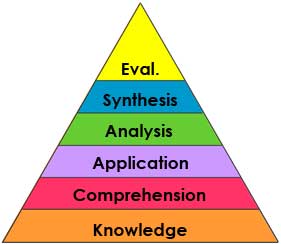Deep Reading – A Reason to go Offline?
March 1st, 2013
The internet is no place for sustained reading and deep thought.
That’s a strong statement, but it’s one that I feel increasingly adamant about. The form of a media determines the nature of its content, and there are aspects of the internet which dissuade the user from critical thinking. Of course, the internet is an umbrella for many different types of media. For the purpose of this post, I want to discuss the medium you are consuming right now: the article.
From early last year, I started doing most of my reading on my Kindle, a device which, I guess many Kindle enthusiasts would also attest to, has totally changed my reading habits. Almost straight away, I noticed that it was easier to read through my Kindle than through a web browser, as I’d been doing in the past. I’ve become a better reader ever since. After a bit of investigating, I discovered why. Online, long-form text is usually surrounded by:
- images
- hyperlinks
- ads
- video
- social media/comments
With all these distractions demanding your attention—not to mention things outside the browser, such as instant messages, software alerts, time displays, and the visual interface of the operating system—it’s difficult to engage with the text. On Kindle, all of these diversions are stripped away. The only thing that can cause you to lose your concentration is the progress bar at the bottom of the screen, which I can see some people fetishising over, but it’s relatively minor.
The other thing that diminishes the reader’s ability to deep read online is the transition between different types of media. Every time the reader switches between watching a video to writing a tweet to sending an email to reading an article, they must adapt to each format. There’s certainly a skill to juggling several kinds of media, but deep reading is no doubt something that becomes weakened in transition, particularly as the internet favours the most accessible, immediate media: images, video, short text, and search, none of which require committed engagement. When a reader approaches a long-form piece after having skim-read through Google, Wikipedia, and Twitter for the past half hour, despite their best intentions, they’re not in the right head space to consume the text.
Going forward, I am committed to long-form writing on video games. While it does pose its own challenges (more on that in a later article), as far as I see it, it’s the only format that does games analysis justice. Writing is the only medium in which complicated ideas can be clearly conveyed, and it’s only in the long-form that the complex nature of games can be fully unravelled. Given everything I’ve said on the internet and deep reading, it makes no sense for my long-form articles, which require deep reading and engagement, be placed in a medium which constantly tells the reader to stop reading. As the author of such content, it’s my responsibility to slow the reader down and ease them into the analysis, something that I simply can’t do online. So the only responsible thing I can do is to take my writing and put it offline. This doesn’t mean that I’m going to close down the blog, but it does mean that I’m going to be smarter with how I write and position my content.
My plan is to reserve all good long-form articles (anything more than 3 pages, I guess) for future books and use the blog for short-form articles, updates, and stuff that can’t fit anywhere else. As you may have already noticed, I’ve been customising the articles that go onto the site for internet reading. That is, more headings, bullet points, and snappy commentary. This isn’t a bad thing. In fact, it’s a real improvement over what I was doing before. Now, I have a space to bang out some real nuggets of insight and a space to sit and stew over ideas for a prolonged period. Although I’m still settling into this groove, in the long run, I think it’ll work out for the better.
There are a few more ideas that I wanted to bookend the article on. Fittingly, I’ve presented these as a series of dot points:
- Yes, I’m aware that people can still be distracted by the internet when reading on a tablet or a computer, out of browser, but these methods are still better than in-browser reading.
- I think there’s certainly a case to be made for video—it has a lower barrier to entry and allows for more “embedded” analysis—but I’m far too wary of the medium’s tendency to reduce all content into entertainment to engage in it myself (see: Neil Postman’s Amusing Ourselves To Death).
- If you’re interested in deep reading online, then you might want to check out the following:
–Instapaper – This service saves online articles and delivers them, in packages, to your mobile, tablet, or reading device. Very useful. Thanks to Instapaper, I basically do all my online reading on my Kindle.
–Safari’s Reader Function – The little blue button in Safari’s address bar darkens the website and pulls up a white slate with the contents of the article inside, removing the distractions of the website.
Additional Readings




 Game Design Companion: A Critical Analysis of Wario Land 4 - $7.99
Game Design Companion: A Critical Analysis of Wario Land 4 - $7.99 Level Design: Processes and Experiences
Level Design: Processes and Experiences Speed Boost: The Hidden Secrets Behind Arcade Racing Design - $5.99
Speed Boost: The Hidden Secrets Behind Arcade Racing Design - $5.99 Adventures in Games Analysis: Volume I - $5.99
Adventures in Games Analysis: Volume I - $5.99







